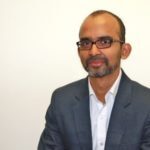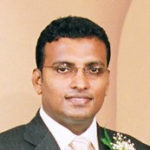Themes & Tracks
TRACK TITLE
Data Issues for Situation/Disaster Awareness
INTRODUCTION TO THE TRACK:
The data-driven nature of the scientific research on situation awareness demands open access to data as it is impossible to fully understand the cause and impact of a situation or impact of an event without consulting multiple types of data. Numerous technological advances in instrumentation and computation have enabled the observation and recording of various data before, during and after each events, creating a valuable database of information for research into situation such as natural hazards. The most recent improvement in satellite observation, aerial photogrammetry, in development of ground observation stations and advancement of various measurement instruments have significantly improved our ability to obtain information in real time and increased our capacity to keep the exponentially growing amounts of data. This accelerated growth in data size is due both to the higher ability of data collection and to the increased number of incident events in recent years.
The data challenge for researchers comes from several aspects: the massive quantity of data, the distributed nature of these data, the heterogeneity and diversity of the data. Compounding these challenges is the lack of data sharing. Due to both policy and technology limitations, it is often difficult to share and access data across disciplines, organizations, and distant geographic locations.
Sharing of science data on any situation or disasters is realized through cooperation among states, institutions and organizations, which has received a lot of concern from international organizations and governments. International data organizations and disaster research entities show keen interest in open access of data; they have proposed relevant strategic plans and enhanced contact with policy makers and research institutes to implement the plans, making standards and integrating interoperability.
As our societies have entered the information age, the collection, framework, storage and services of disaster data have also entered the digital phase, enabling large scale analysis and processing of such data by the scientific community. Open data strategies have been adopted in more and more disaster related data service infrastructure, especially with the trend of global open data. In all phases of disaster management including forecast, emergency response and post-disaster reconstruction, the need for interconnected multi-disciplinary open data for collaborative study and analysis is apparent, in order to recognize and discover the rules and discipline of disaster completely, scientifically and in time.
TRACK OBJECTIVES:
The chairs invite innovative contributions that address data standards, data quality, and analytical framework, dealing with uncertainty, data fusion, interoperability and data representation and reasoning for situation or disaster events. In particular, this track aims to showcase initiatives that look within and across the natural, built and socioeconomic environments for resilience solutions that support survival, sustainable growth and flourishing at community, global, regional and national scales. Scientific community and governmental organizations do to advance the state of disaster relevant data for a better understanding of disasters and more effective ways of mitigating and reducing impact of disasters on lives and properties will be explored in the session.
TRACK EXAMPLE TOPICS
- Data standards
- Data quality
- Data uncertainty
- Data fusion
- Data representation and reasoning
- Emergency data interoperability, e.g. EDXL
TRACK CO-CHAIRS:
Bapon Fakhruddin (coordinating co-chair)
Tonkin + Taylor, New Zealand
[email protected]
Vimukthi Jayawardena
University of Queensland, Australia
[email protected]
Virginia Murray
Public Health England, United Kingdom
[email protected]
Joanne Stevenson
Resilient Organisation, New Zealand
[email protected]

Bapon Fakhruddin
Dr Fakhruddin is an expert climate change risk assessor with 15 years’ global experience in working on disaster risk and climate resilience projects. This experience is a major advantage in climate change adaptation and mitigation strategy development. His key areas of expertise are climate and hydrological assessment, early warning and emergency response, climate change adaptation, and capacity building. Dr Fakhruddin designed early warning and emergency response projects more than 25 countries in Asia and the Pacific.
Dr Fakhruddin is currently advising the Government of Samoa on potential adaption strategies for dealing with the country’s vulnerability to climate change and enhancing its resilience to hydrological disaster. He is a Science Committee Member of IRDR of ICSU/UNISDR, Co-Chair for the Disaster Loss DATA and Risk Interpretation and Applications (RIA) Working Group of IRDR of ICSU/UNISDR. He is also Co-Chair CODATA task group Linked Open Data for Global Disaster Risk Research (LODGD) and PSG member of the Coastal Inundation Forecasting Demonstration Project (CIFDP) of WMO.
Capabilities: climate and hydrological risk assessment, design and implementation of hazard early warning system and emergency communication, climate change adaptation, training and capacity building and integrated water resources management.

Vimukthi Jayawardene
Vimukthi holds a PhD in data quality management from the University of Queensland Australia. He is an expert in modelling data quality requirements using goal oriented requirements engineering methods. His current research interests are focussed on developing a proactive and reusable solution base for data quality management through implementing data quality requirements in business processes and business rules. Vimukthi has expertise in enterprise resource planning systems (ERP) with SAP for more than ten years of industry experience in technical consulting. Vimukthi holds a Bachelor’s degree in physical science from the University of Colombo, Sri Lanka and a master’s degree (MBA in IT) from the University of Moratuwa Sri Lanka. Currently he is lecturing for the foundation year course of the University of Queensland.

Joanne R. Stevenson
Over the past decade Joanne has accumulated post-disaster research and consulting experience in several countries, examining recovery and resilience of communities, economies, and organisations. She enjoys grappling with complex systems and developing practical solutions to work with these, using her background in geospatial assessment and network analysis. Joanne also farms in partnership with her family on a commercial sheep and beef property where the risks and opportunities of running a business in a dynamic environment are lived every day.











